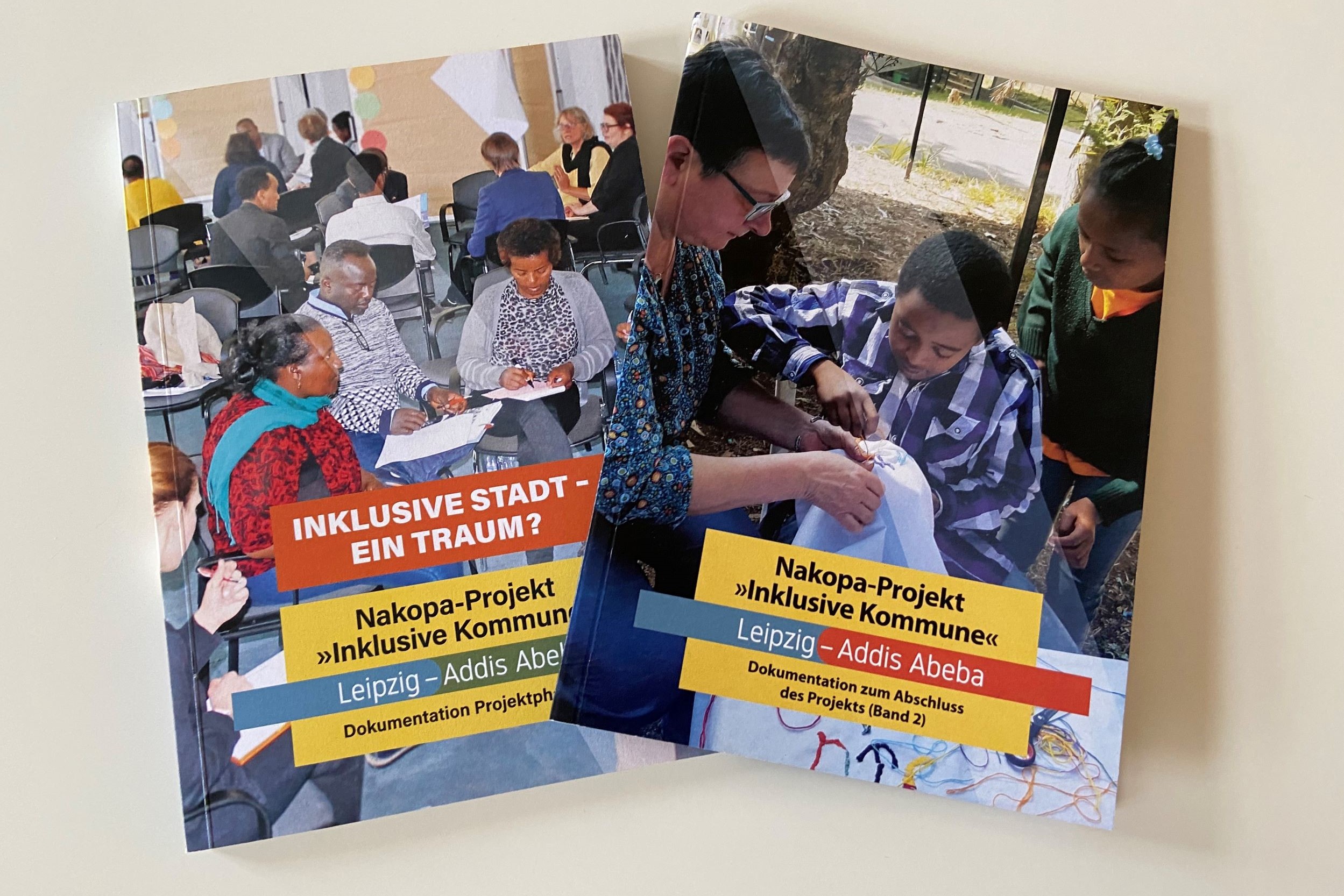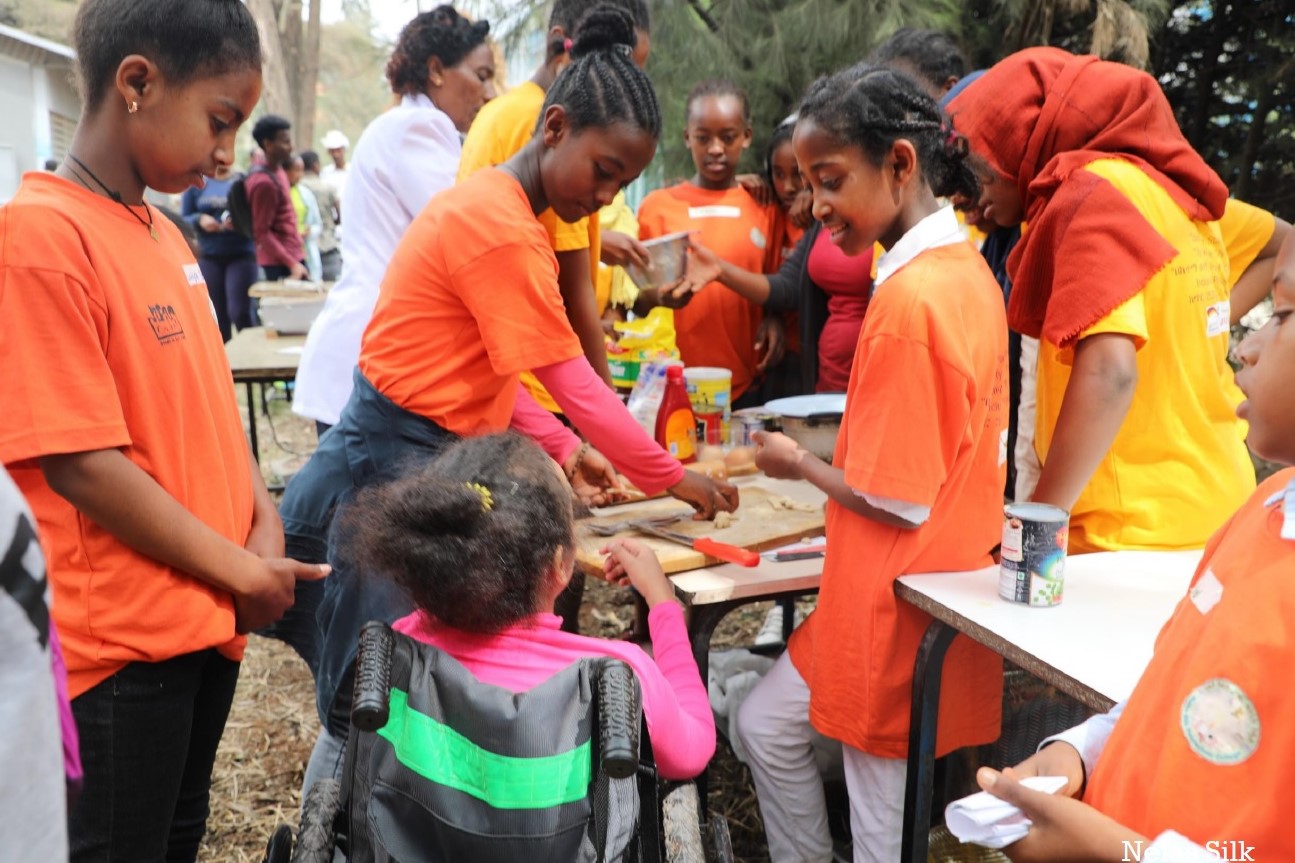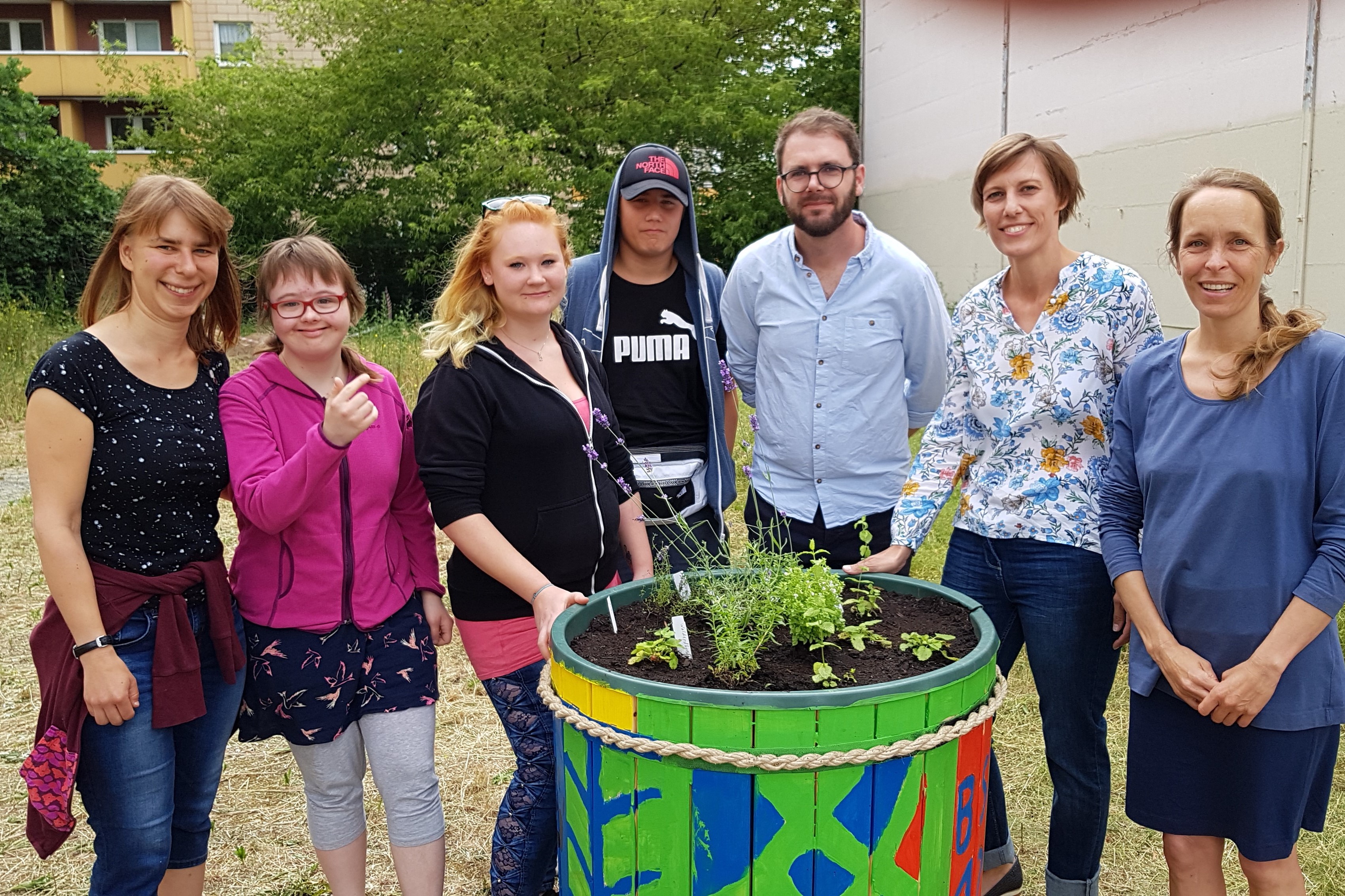This website reports about the ‚Inclusive Municipality‘ project. The project involves two cities working together: Leipzig in Germany and Addis Ababa in Ethiopia. They are twin cities.
We want disabled and non-disabled people to live better together. The technical term for this is inclusion. Inclusion means that all people are allowed to take part everywhere: People with disabilities, with different religions, with different ages or with special needs. For this, the environment must change, not the single person.
Our project connects different cities. Inclusion experts and employees of the city administrations exchange ideas. We are interested in understanding how disabled and non-disabled people learn together, and how they are creative together. On this basis, we jointly develop new ideas and make them known in our cities.
The ‘Office for International Affairs’ handles the project in Leipzig. It cooperates with the ‘Office for Public and International Relations’ in Addis Ababa. Many partners take part in the project in both cities. The ‚Engagement Global‘ organization supports our work with funds. The funds come from the programme: ‘Partnership Projects for Sustainable (long lasting) Local Development’. The short name is Nakopa.


